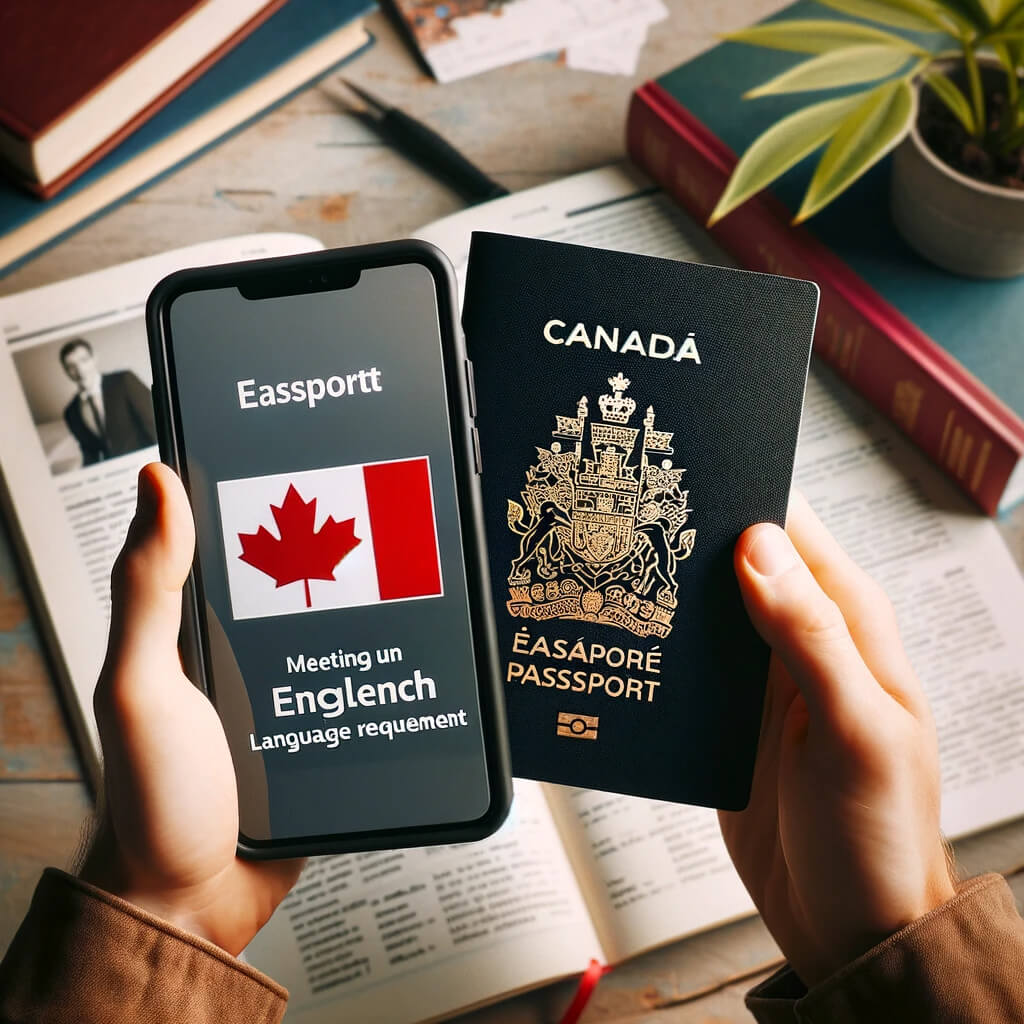Show Money for Canada Student Visa - Your Complete Guide
Your Quick 30-Second Answer to Show Money for Canada Student Visa
When applying for your Canada Student Visa, proof of funds is key. Ensure you have a Canadian bank account with at least CAD 20,635, exclusively for living expenses. A Guaranteed Investment Certificate (GIC) from a Canadian bank can also be used. A student loan approval document is acceptable if you’re financing your education through a loan. If your education is funded by family members, include their bank statements as proof. Remember, this amount doesn’t include tuition and travel expenses, which are additional. It's essential to keep abreast of the latest financial requirements. Ensure all your financial documents are current and valid. This will demonstrate your financial readiness and help avoid delays in your visa application. Accurately presenting your finances is crucial for a successful visa application.
For an in-depth overview, please see the "Table of Contents" below.
Proof of Funds to Show Money for Canada Student Visa
Welcome to our comprehensive guide, where we delve into everything you need to know about showing money for Canada student visa, ensuring your journey to studying in Canada is smooth and well-informed.
TABLE OF CONTENT
Financial Aspects of Student Visa
1. Direct to the Point Answer
2. Financial Requirements
3. Breaking Down the Costs
Proving Your Financial Readiness
4. Proving Financial Capability
5. Bank Statements as Proof
Alternative Financial Proofs
6. Education Loans as Option
7. Scholarship Letters
Application Process Insights
8. Navigating the Application
Summaries and Helpful Tools
9. Key Points Discussed
10. FAQs to Showing Money
11. Additional Resources

1. Your Direct to the Point Answer to Show Money for Canada Student Visa
Choosing Canada for education is a smart move, but you'll need a student visa Canada (study permit) to pursue your academic dreams. I myself moved to Canada as a student several years ago. Like a roadmap, I carefully looked at my options about how to study in Canada, how to apply for a student visa and later work in Canada during and after study. Now, I am a lawyer in Canada and have my family here, living the life I dreamt of.
Understanding Proof of Funds for Canada Student Visa
When applying for a student visa in Canada, demonstrating your financial capability is crucial. The Canadian government has specific requirements for proof of funds, especially for applications received after January 1, 2024. Let's focus on the sources you can use to show your financial readiness.
- 1. Canadian Bank Account: One acceptable proof is a bank account in Canada under your name. This account should reflect the required amount of at least CAD 20,635 for living expenses, plus additional funds for tuition and travel.
- 2. Guaranteed Investment Certificate (GIC): A GIC from a recognized Canadian bank is another solid option. This is a popular choice for international students as it demonstrates your funds are secured and readily available in Canada.
- 3. Student/Education Loan: If you're financing your studies through a loan, you can present a loan approval document from a financial institution. The document must clearly indicate the amount available to you as a loan.
- 4. Other Financial Documents: In some cases, you might also be able to use documents like scholarship or funding letters, especially if you're receiving financial aid from your institution or a government body.
- 5. Family Members' Funds: If your family is supporting your education, you'll need documents to prove their financial ability. This includes bank statements and other financial documents in their name, which must also meet the financial threshold.
A. Overview of the Canadian Student Visa Process
- The Canadian student visa, known as the study permit, is a crucial document for international students who wish to pursue higher education in Canada. Applying for a Canadian student visa involves several steps, including acceptance by a Canadian educational institution, a comprehensive application process, and satisfying various requirements set by Immigration, Refugees and Citizenship Canada (IRCC), Government of Canada.
B. Importance of 'Show Money' or Financial Proof'
- Show money' or financial proof is a vital part of the Canadian student visa application. It is evidence that the applicant has sufficient funds to cover their tuition and living expenses while studying in Canada. This requirement ensures that international students can financially sustain themselves during their stay without undue hardship or need to seek unauthorized work.
C. Recent Policy Updates and Financial Requirements
- Recent policy updates, effective from January 1, 2024, have introduced changes to the financial requirements for the Canadian student visa. As per the latest guidelines, a single new study permit applicant is required to show proof of funds of $20,635 in liquid funds. This amount represents 75% of the Low-Income Cut-Off (LICO) and is in addition to the first year of tuition and travel costs. These updated requirements only apply to new study permit applications received on or after January 1, 2024.
D. Understanding the 'Show Money' Amount and Coverage
- The specified amount of $20,635 needs to be shown in liquid funds, which means it should be readily accessible to the student. This amount is expected to cover living expenses for a year and does not include tuition fees or travel costs, which must be accounted for separately. This requirement is essential to ensure that international students can comfortably afford their stay in Canada without experiencing financial difficulties.
In summary, when applying for your Canadian student visa, ensure your proof of funds is clear, legitimate, and meets the updated requirement of at least CAD 20,635 for living expenses, along with additional amounts for tuition and travel. This will demonstrate to visa officers that you're financially prepared for your studies in Canada. In the following sections, we will delve into the details of how to demonstrate financial capability, the types of financial evidence accepted, and guidance on navigating the visa application process with a focus on the financial aspects.
2. Financial Requirements to Show Money for Canada Student Visa

A. Explanation of 'Proof of Funds': What Does it Mean?
'Proof of funds' is a critical requirement for obtaining a Canadian student
visa. It refers to the verification by Canadian authorities that a
student has enough money to cover their expenses while studying in
Canada. This proof ensures that the student can afford tuition fees, living
expenses, and other costs without facing financial hardships.
B. Detailed Breakdown of the Required Amount of Funds
As of 2024, the proof of funds required for a Canadian study permit includes showing $20,635 in liquid funds. This amount is based on the Low-Income Cut-Off (LICO) and covers 75% of living expenses for a year. Additionally, students must demonstrate they can cover their first year of tuition and travel costs. These requirements ensure that students have enough funds to sustain themselves in Canada.
C. Types of Financial Evidence Accepted by Canadian Authorities
The financial evidence accepted includes:
- 1. Bank Statements: Official statements from a recognized financial institution, showing sufficient or minimum bank balance over a period.
- 2. Guaranteed Investment Certificate (GIC): A Canadian financial product that shows investment in Canadian dollars.
- 3. Bank Drafts: An acknowledgment by a bank that funds are available and reserved for the student.
- 4. Proof of a Canadian Bank Account: If the student has transferred funds to a bank account in Canada.
- 5. Loan Approval Letter: A document from a financial institution confirming the approval of a bank loan for education.
- 6. Scholarship or Funding Letters: Official letters from educational institutions or sponsors providing scholarships or funding.
- 7. Letter of Explanation: A document that explains any unique financial situations or arrangements.
These documents collectively demonstrate the financial capacity of the student, ensuring they meet the financial requirements of the country for their study program.
D. Additional Considerations for Financial Proof
- Family Members: If the student plans to bring family members, additional funds must be shown.
- Local Visa Office Requirements: Some local visa offices may have specific documentation requirements.
- Insufficient Funds: Students need to be wary of common pitfalls like showing insufficient balance or irregular financial history.
- Language Proficiency Test: Proof of English language proficiency is often a parallel requirement for the visa application.
- Study Permit Application: All financial documents must be included with the study permit application form, adhering to guidelines set by IRCC and the Canadian government.
In the next sections, we will explore how students can effectively demonstrate their financial capability, including tips on presenting bank account statements and navigating the loan approval process.
3. How to Show Money for Canada Student Visa? Breaking Down the Costs

When planning to study in Canada, it's crucial for international students to understand the financial requirements, particularly concerning 'show money' for the Canada student visa. This section breaks down the costs, including tuition fees, living expenses, and additional necessities.
A. Estimation of Tuition Fees for Various Canadian Educational Institutions
Tuition fees in Canadian universities vary widely depending on the institution and the program of study. For instance, McGill University in Quebec has announced that its basic tuition fee for the academic year 2024-25 will be $98.91 per credit, representing a 3% increase from the previous year. However, it's important to note that tuition fees can differ across provinces and universities. Prospective international students should research the specific fees for their chosen institution and program.
B. Calculation of Living Expenses in Canada
The cost of living in Canada for international students can range significantly. In 2024, the average cost of living for a single person is estimated to be around $1,330.70 per month without rent. Students should budget between CAD 600 and 800 monthly for groceries and other daily expenses, excluding accommodation. It's crucial to consider accommodation options, as costs can vary between city centers and other areas. For example, renting a 1-bedroom apartment in a city center averages $1,637.29 per month, while outside the city center, it's around $1,404.08. Overall, the average cost of living in Canada as a student can be between 15,000 CAD - 20,000 CAD annually, depending on lifestyle and preferences.
C. Additional Costs: Travel, Insurance, and Other Necessities
In addition to tuition and living expenses, international students must account for other costs such as travel to Canada, health insurance, and miscellaneous expenses. Immigration, Refugees and Citizenship Canada (IRCC) has specified that students should have CAD 20,635 in addition to the first year's tuition and airfare. This figure is meant to cover 75% of the Low-Income Cut-Off (LICO) for living expenses. Students should also budget for health insurance, travel costs within Canada, and any other personal expenses.
It's important for students to plan their finances carefully and ensure they meet the 'show money' requirements for their Canada student visa application. This includes having sufficient funds to cover tuition, living expenses, and additional costs for the duration of their studies in Canada.
4. Demonstrating Financial Capability to Show Money for Canada Student Visa

A. Guidelines on Presenting Bank Statements Effectively
When applying for a Canadian student visa, presenting your bank statements is crucial. Here's how to do it effectively:
- 1. Recent Statements: The bank statement should be issued no more than one week before your departure for Canada. It should clearly show your account balance and be on the official letterhead of your banking institution.
- 2. Cover a Certain Period: Your local visa office might require you to provide bank account statements for a specific period, often the last six months, preceding your application.
- 3. Original Documents: It's imperative to bring the original letter provided by your banking institution, not a photocopy.
B. The Role of Education Loans in Visa Applications
Education loans play a significant role in demonstrating financial capability for a Canadian student visa:
- 1. Loan Approval Letter: Submitting a loan approval letter or loan capability certificate can act as proof of sufficient funds. It should cover your tuition fee and other living expenses.
- 2. Minimum Bank Balance: Some students may show they have $25,000 in cash or a checking account from a sponsor to enroll in a Canadian educational institute.
C. How Scholarship Letters Can Be Used as Financial Proof
Scholarship letters can also be an effective way to demonstrate financial capability:
- 1. Original Scholarship Letter: An original scholarship letter stating the amount and duration of the scholarship can be used as part of your financial proof.
- 2. Include with Other Financial Documents: Alongside bank statements and loan approval letters, a scholarship letter can strengthen your proof of financial support.
Ensuring that all financial documents like bank statements, loan approval letters, and scholarship letters are up-to-date, original, and clearly indicate the available funds is vital for a successful Canadian student visa application. These documents should comprehensively cover tuition fees, living expenses, and any additional costs associated with studying in Canada.
5. Bank Statements as Proof to Show Money for Canada Student Visa

A. What Do Visa Officers Look for in Bank Statements?
Visa officers assess bank statements to verify applicants' financial capacity for their studies in Canada. The key aspects they look for include:
- 1. Recentness of Statements: Bank statements should be recent, preferably no older than one month, to reflect current financial status.
- 2. Consistency and Stability: The account should show a stable and consistent balance over several months, ideally four months or more, without large, unexplained deposits or withdrawals.
- 3. Sufficient Balance: The balance should cover at least CAD 20,635 for living expenses, plus tuition fees, as per the updated 2024 requirements.
B. Maintaining Sufficient Balance: Tips and Best Practices
To ensure your bank statements effectively demonstrate financial capability:
- 1. Avoid Large, Sudden Transactions: Sudden large deposits can raise questions about the genuineness of funds. Regular, consistent savings are more convincing.
- 2. Keep Funds in a Recognizable Financial Institution: Ensure your funds are in a bank recognized and accepted by Canadian authorities.
- 3. Balance Certificates: Alongside bank statements, consider providing balance certificates as additional proof of funds.
C. The Importance of Consistent Financial History
A consistent financial history in your bank statements is crucial for a few reasons:
- 1. Demonstrates Financial Responsibility: It shows you have been responsible and systematic in managing your finances.
- 2. Upholds Legal Requirements: Consistency aligns with Canada's Immigration and Refugee Protection Act, as visa officers ensure applicants meet legal financial requirements.
- 3. Supports Your Application's Credibility: Consistency in financial records enhances the credibility of your study permit application.
Effective financial planning and preparation of bank statements play a pivotal role in proving you have the necessary show money for Canada student visa. By following these guidelines, you can present a strong financial case to the visa officers.
6. Education Loans: A Viable Option to Show Money for Canada Student Visa

Obtaining an education loan is a practical approach for
international students to demonstrate financial capability for a Canadian
student visa. Let's delve into the process, documentation, and
understanding of loan capability certificates:
A. Process of Securing and Presenting an Education Loan
- 1. Eligibility Check: The first step is to check your eligibility for an education loan. Major unsecured education loan providers in Canada include private banks and Non-Banking Financial Companies (NBFCs).
- 2. Application Process: The Canada Student Loan Program is a federal option available for some international students, especially those with protected status like refugees. This program primarily serves Canadian citizens.
- 3. Documentation: When applying for a loan, prepare essential documents like proof of admission, financial records, and possibly a guarantor's financial details.
B. Documentation Required for Loan Approval Letters
- 1. Proof of Admission: A letter of acceptance from a Canadian university or designated learning institution is necessary.
- 2. Financial Documents: Bank statements and proof of income, either of the applicant or the guarantor, are typically required.
- 3. Credit Assessment: Banks may conduct a creditworthiness assessment, which includes evaluating your or your guarantor's financial history.
C. Understanding Loan Capability Certificates
- 1. Certificate Issuance: Upon loan approval, banks issue a loan capability certificate, which is an official document indicating the amount sanctioned for your education.
- 2. Submission to Visa Officer: This certificate must be presented to the visa officer as part of your Canada student visa application, showcasing your financial readiness.
- 3. Meeting Show Money Requirements: The loan amount should ideally cover the minimum required balance for living expenses and tuition fees, which for 2024, stands at CAD 20,635 per year, excluding tuition.
Securing an education loan and obtaining a loan capability certificate are effective ways to meet the show money for Canada student visa requirements. It's essential to ensure all paperwork and financial proofs align with the updated visa guidelines and requirements for a smooth application process.
7. Scholarship Letters: Leveraging Them to Show Money for Canada Student Visa

Scholarship letters can be an effective means of demonstrating financial capability when applying for a Canadian Student Visa. Understanding how to leverage these scholarships effectively is crucial for prospective international students. Here's a deeper look into using scholarship letters as proof of funds:
Types of Scholarships Recognized by Canadian Immigration
- 1. Government-Sponsored Scholarships: Global Affairs Canada offers several scholarships for international students, such as the Canada-CARICOM Leadership Scholarships Program and the Emerging Leaders in the Americas Program. These scholarships are recognized by Canadian immigration authorities and can significantly support your visa application.
- 2. University-Sponsored Scholarships: Many Canadian universities offer scholarships to international students. These include the University of Toronto, McGill University, and University of British Columbia. Each institution has its scholarship programs, and securing one can serve as a solid financial proof for your visa application.
- 3. Private and Non-Governmental Scholarships: Scholarships offered by private organizations and foundations are also accepted. Programs like the Banting Postdoctoral Fellowship and the Vanier Canada Graduate Scholarships are examples of prestigious awards that can bolster your financial proof.
How to Present a Scholarship Letter in Your Application
- 1. Official Documentation: Ensure your scholarship letter is on the official letterhead of the awarding institution or organization. It should clearly state the amount of money awarded and the conditions, if any.
- 2. Details of the Scholarship: The letter should detail what expenses are covered, such as tuition, living expenses, and travel. This helps the visa officer understand how the scholarship funds will be used.
- 3. Additional Financial Support: If your scholarship does not cover all expenses, you will need to demonstrate additional funds. This could be through savings accounts, bank drafts, or proof of funding from other sources.
- 4. Validity and Duration: The scholarship should be valid for the duration of your study program. Temporary scholarships or one-time grants may require additional financial proof.
- 5. Inclusion in Application: Include the original scholarship letter with your study visa application. If there are online verification systems, provide necessary details for the immigration officers to verify the scholarship.
- 6. Other Documents: Along with the scholarship letter, include other supporting documents such as your letter of acceptance from the Canadian university, proof of identity (like a valid passport), and any other relevant documents requested by the Canadian immigration authorities.
Navigating the Visa Application Process
- 1. Understanding Visa Requirements: Familiarize yourself with the visa application process on the CIC website. Ensure you meet all eligibility requirements to avoid student visa rejection.
- 2. Seek Advice if Needed: If you're uncertain about the process, consider consulting immigration consultants who can guide you through the application, ensuring all documentation is correctly presented.
- 3. Plan Ahead: Start the application process well in advance. Some scholarships have specific application timelines, and it's crucial to align these with your study visa application.
In summary, scholarships are a viable way to demonstrate show money for a Canada student visa. They provide a clear indication to immigration officers that you have the necessary financial support for your studies in Canada. By presenting a comprehensive and well-documented application, you increase your chances of a successful visa process, opening doors to high-quality education and opportunities in Canada.
8. Navigating the Visa Application to Show Money for Canada Student Visa

Navigating the Canadian student visa application process can be intricate, especially when it comes to show money for Canada student visa. Here's a comprehensive guide to help you through this crucial phase.
Step-by-Step Guide to the Student Visa Application Process
1. Check Your Eligibility: Before you start the application process, ensure you meet all eligibility criteria. This includes being accepted into a Designated Learning Institution (DLI) in Canada and having enough funds to cover your tuition fees, living expenses, and return transportation.
2. Application Setup: You must apply online, providing electronic copies of necessary documents. These include your acceptance letter, proof of identity (like a valid passport and photographs), and proof of financial support. The latter can be demonstrated through a variety of means, including bank statements, education loans, scholarship letters, or a Guaranteed Investment Certificate (GIC).
3. Gather Financial Documentation: This is crucial to show that you have sufficient funds for your studies in Canada. Documents for self-funding include employment certificates, bank statements, and proof of income tax return. If applying through the Student Direct Stream, you'll need evidence of first-year tuition fee payment and GIC.
4. Special Focus on Financial Documentation:
- Bank Statements: Required to show a consistent and sufficient balance. A four-month statement is generally needed.
- Education Loans: Loan approval letters and loan capability certificates are vital.
- Scholarship Letters: Official letters from the sponsoring organization are mandatory.
- Proof of Payment of Tuition Fees: Receipts or official letters from the DLI confirming payment.
- Support from Relatives or Non-relatives: Documents such as bank statements, income tax returns, and proof of relationship or support letters are needed.
5. Common Mistakes to Avoid:
- Lack of a Study Plan: Ensure you submit a detailed study plan or a letter of explanation.
- Applying Late: Factor in enough time for biometric provision and document preparation.
- Poorly Organized Documents: Keep your documents well-organized and follow the checklist provided on the IRCC website.
- Insufficient Proof of Funds: Demonstrate adequate funds for tuition and living expenses.
- Weak Ties to Home Country: Show strong ties to your home country to ensure that you are likely to return after your studies.
Successfully applying for a Canadian student visa requires
careful planning and attention to detail, particularly regarding financial
proof. By following these guidelines and avoiding common pitfalls, you can
strengthen your application and increase your chances of approval. Remember,
the show money for Canada student visa is a critical aspect that needs
meticulous preparation and clarity in your application.
9. Key Points Discussed to Show Money for Canada Student Visa

As we conclude this insightful exploration of Show money for Canada student visa, it's essential to revisit our discussion's key elements and provide additional insights, especially for foreign students aiming to study in Canada.
Recap of Key Points:
1. Financial Proof: The core of your application revolves around showing sufficient funds, be it through bank statements, scholarships, or loans.
2. Visa Application Process: A methodical approach towards the visa application form and documentation is crucial.
3. Utilization of Education Loans and Scholarships: These are significant means to demonstrate financial capability.
4. Importance of Proper Documentation: Ensuring that all following documents are accurate and complete is pivotal.
Expanding on the Conclusion:
1. The Role of the Immigration Officer: The immigration officer plays a critical role in evaluating your financial documents and overall application. Understanding their perspective can help tailor your application effectively.
2. Crafting a Compelling Statement of Purpose: Your statement of purpose is not just about academic goals but also reflects your financial planning for studying in Canada.
3. Applying for a Temporary Resident Visa: This is a necessary step for most foreign students, and showing sufficient funds is a critical part of this process.
4. Detailed Breakdown of University Fees: Understanding the university fees and incorporating them into your financial plan is essential.
5. Steps After Getting a Canada Study Permit: Once you receive your Canada study permit, the next steps involve preparing for your life in Canada, including arranging for electronic travel authorization if required.
6. Budgeting for the Initial Months: Planning for the initial months in Canada, including extra money for unforeseen expenses, is crucial for a smooth transition.
7. The Role of Canada Border Services Agency: Upon arrival, the Canada Border Services Agency will verify your documents and ensure compliance with visa conditions.
8. Least Known Facts for Aspiring Students: While Canada is a popular destination for education, there are lesser-known facets like paper application processes and availability of mutual funds options for students, which can be explored.
Final Thoughts:
Canada beckons as a land of opportunity and high-quality education for overseas students. By understanding the nuances of financial proof, such as the importance of a well-documented wire transfer or the utility of savings accounts, students can navigate the complexities of the visa process with confidence. Remember, the journey to becoming a full-time student in Canada is a blend of meticulous planning, keen awareness of financial terms, and an unwavering spirit of ambition. With the right approach and preparation, your aspiration to study in one of the world's most welcoming countries can become a tangible reality.
10. FAQs to Show Money for Canada Student Visa

What Is the Required Show Money for a Canada Student Visa?
What Is the Required Show Money for a Canada Student Visa?
Applicants must show sufficient funds for tuition fees, living expenses, and return transportation. The exact amount depends on the study program's duration and the applicant's specific circumstances.
Can Bank Statements From a Joint Account Be Used as Proof?
Can Bank Statements From a Joint Account Be Used as Proof?
Yes, bank statements from a joint account are acceptable, as long as they clearly indicate the applicant's name and demonstrate sufficient available funds.
Are Education Loans Accepted as Proof of Financial Support?
Are Education Loans Accepted as Proof of Financial Support?
An official loan approval letter from a recognized financial institution can serve as proof of financial support.
How Recent Should My Financial Documents Be?
How Recent Should My Financial Documents Be?
Financial documents, like bank statements, should generally be recent, preferably not older than six months from the visa application date.
Can I Use a Scholarship as Show Money?
Can I Use a Scholarship as Show Money?
An official scholarship letter specifying the amount and duration can be used as part of the financial proof for the visa.
What Is the Role of a Sponsor in My Student Visa Application?
What Is the Role of a Sponsor in My Student Visa Application?
A sponsor, often a family member, can provide financial support. Necessary documents include a letter of sponsorship and proof of the sponsor's financial capability.
Do I Need to Show Money for Living Expenses for My Entire Stay in Canada?
Do I Need to Show Money for Living Expenses for My Entire Stay in Canada?
Proof of funds is required for the first year of stay in Canada. For longer study programs, there should be a plan to fund subsequent years.
How Can I Prove Funds If My Parents Are Supporting Me Financially?
How Can I Prove Funds If My Parents Are Supporting Me Financially?
You can present your parents' bank statements along with a letter confirming their financial support during your studies.
Is a Bank Draft Acceptable as Proof of Funds?
Is a Bank Draft Acceptable as Proof of Funds?
A bank draft in a convertible currency is acceptable, provided it is readily transferable into Canadian dollars.
Can I Use Funds From a Recent Large Deposit as Show Money?
Can I Use Funds From a Recent Large Deposit as Show Money?
Recent large deposits need a clear history and source of funds explanation to avoid complications during the visa process.
These FAQs provide further clarity on various aspects to show money for Canada student visa. Always refer to official guidelines and consult with immigration experts for the most accurate and up-to-date information tailored to your specific situation.
11. Additional Resources to Show Money for Canada Student Visa
To further assist you in your journey, here is a list of helpful websites and organizations on Canada Immigration Without IELTS:
- Language testing—Skilled immigrants (Express Entry) IELTs
- Immigration, Refugees and Citizenship Canada (IRCC)

Kamal Akhtar (Immigration Lawyer)
Barrister, Solicitor & Notary Public
BCOM; MBA; LL.B; LL.M (York University, Toronto)
As the founder of this website and your guide through the complexities of Canadian immigration law, my academic credentials include a Bachelor of Law (LL.B) and Master of Law (LL.M) from York University, Toronto, complemented by an Honours Diploma in Immigration Consulting. I am a lawyer licensed by the Law Society of Ontario (LSO). My affiliation with legal associations such as the Canadian Immigration Lawyers Association (CILA), the Canadian Association of Professional Immigration Consultants (CAPIC), the Canadian Bar Association (CBA), and the Ontario Bar Association (OBA) underscores my commitment to immigration policies and practices. I share insights shaped by over 25 years of legal experience. Please note that information on this website does not constitute legal or professional advice.


